Delivery Drones: What Makes Them Different?
Drone delivery is a game-changer in logistics. Amazon and Walmart are making use of drones for faster delivery. But what makes delivery drones differe
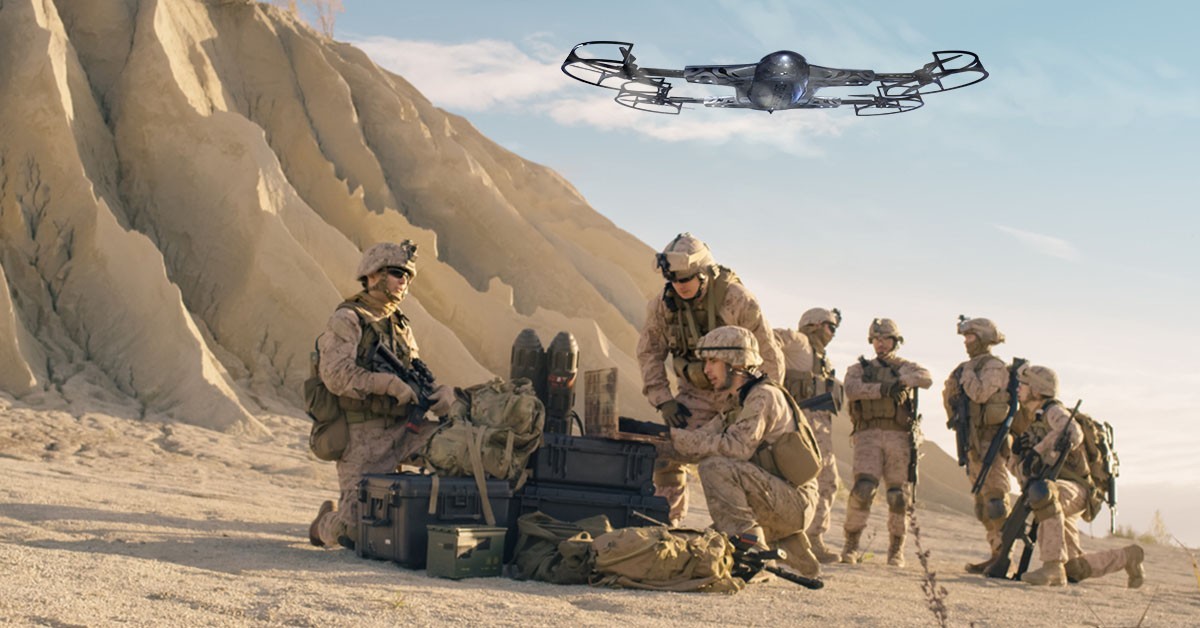
With India’s aerospace and defence industry rapidly growing, the drone industry has a lot to contribute to the same. With the government moving on the path of expansion, digital mapping, agricultural innovation, and military modernization, drones are shaping national security, economy and governance. With all this transformation happening, left, right and centre, opportunities are emerging for ex-defence personnel in the drone industry. This drone will give you an idea about what ex-defence personnel can do in this rapidly evolving industry.
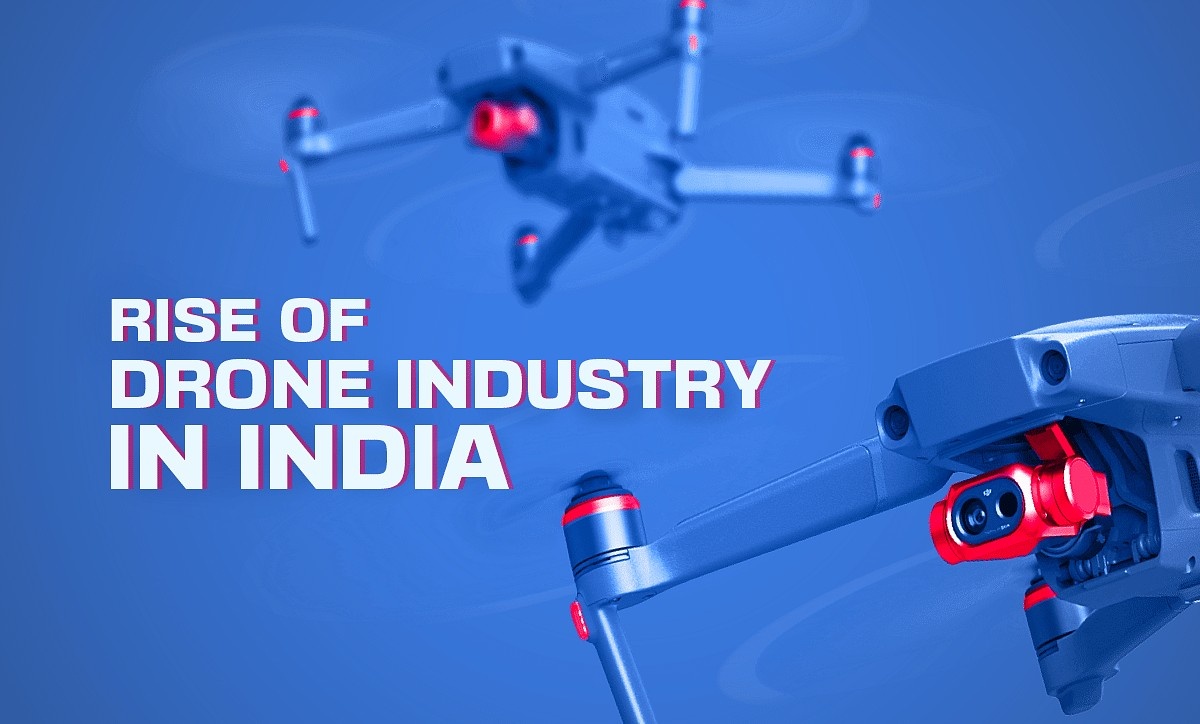
As of 2024, India’s overall drone market is valued at approximately USD 654 million and will grow to USD 1.43 billion by 2029. The defence drone segment is gaining momentum and it will reach USD 4.08 billion by 2030. This is because of the growing use of drones in military surveillance as well as in civilian sectors.
Government interventions have contributed to this impetus. The Drone Shakti scheme, the Namo Drone Didi program, the SVAMITVA scheme are some of the initiatives taken by the government to increase the use of drones in rural India.
Along with this, the regulatory simplifications introduced in the Drone Rules 2021 have reduced the hassle by streamlining approval processes, facilitating pilot licensing, and increasing access to ‘green zones’ for operations.
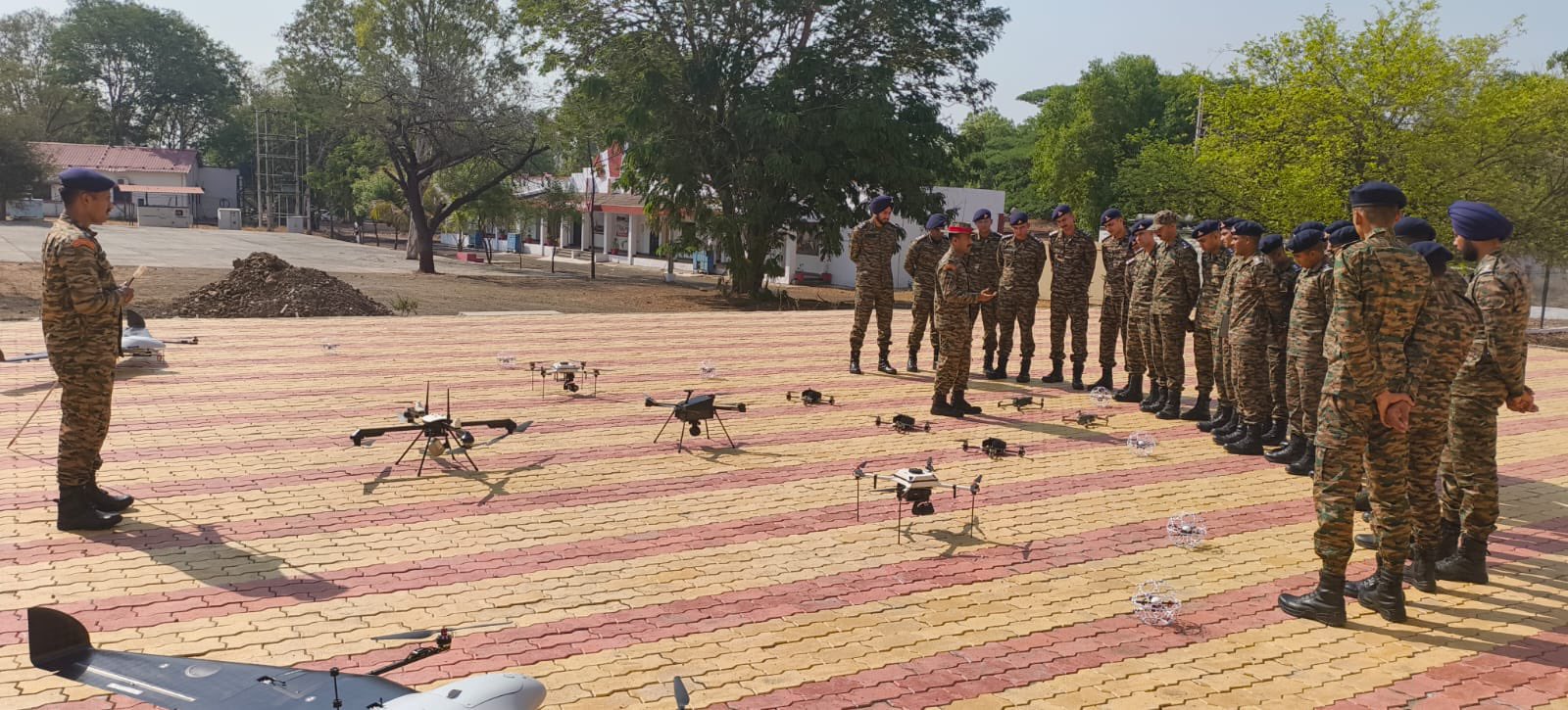
Ex-defence personnel have more or less all the skillsrequired in the drone industry. During the course of their service, they obtain skills that align with drone operations. These include operating complex systems, strategic planning, situational awareness, and the ability to work effectively in various situations. Military veterans can also prove their worth in emergency response protocols and maintaining operational security.
Moreover, many armed forces personnel have practical experience with drones. Their knowledge of Israel’s Heron drones, DRDO’s Rustom series and mini drones for infantry use can also work well as a solid foundation for civilian drone operations. With the integration of AI and other latest technologies, the inclusion of ex-defence personnel becomes even more beneficial.
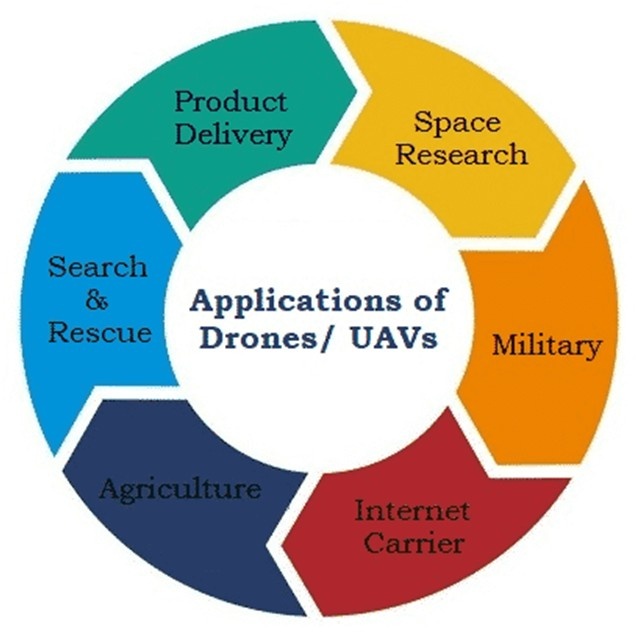
The most common career that an ex-defence personnel can take up in the drone industry is that of a certified drone pilot or an instructor. The DGCA mandates certification through RPTOs in India. With prior knowledge and flying experience, former defence personnel can easily complete this training and can make a grand entry into the drone industry as drone pilots or instructors.
Not only this, they can also work as supervisors
of drone operations in many industries. Due
to their ability to manage ground operations, veterans can excel in supervisory
and training roles.
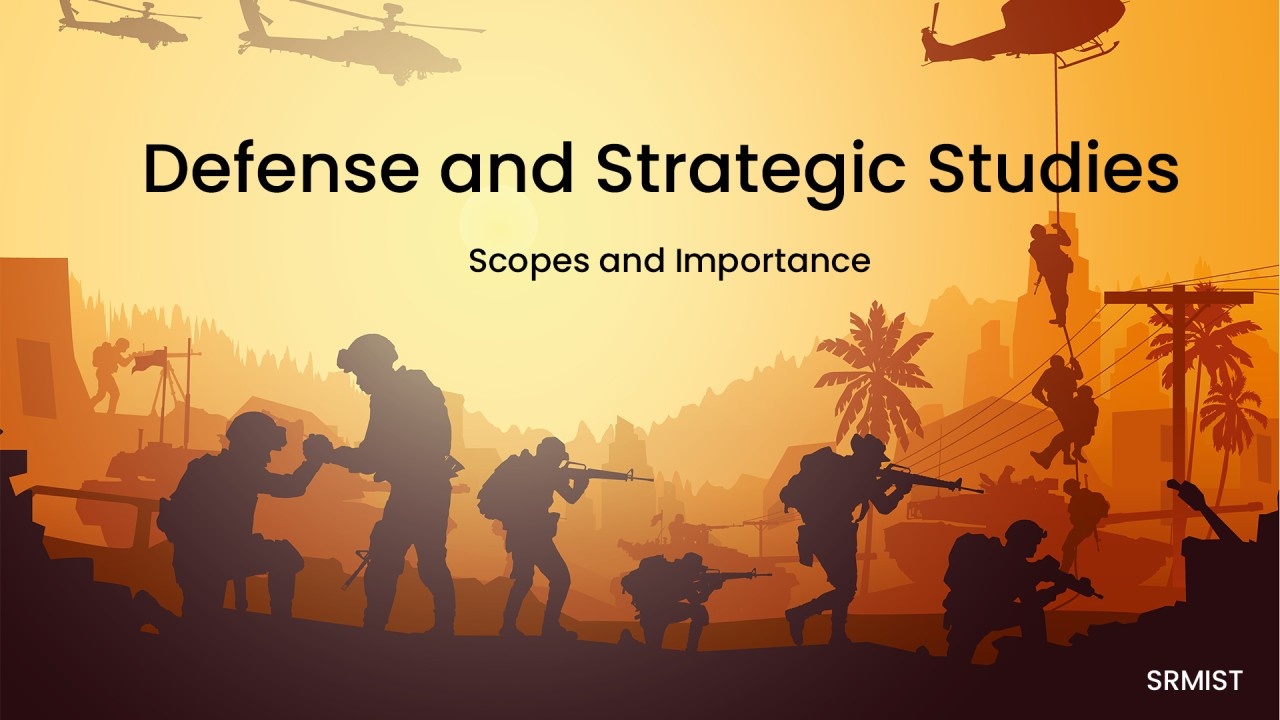
India’s Ministry of Defence is ramping up the acquisition of drones for border surveillance, tactical strike and high-altitude reconnaissance. In 2024, over 200 tactical drones were procured. Ex-defence personnel with knowledge of such systems can excel as project managers, system integrators, and even in on-field jobs.
Moreover, former defence personnel can help formulate strategy and procurement policy. Their understanding of standard operating procedures, security protocols and obtaining cycles guarantees a smoother partnership between private drone manufacturers and the government.
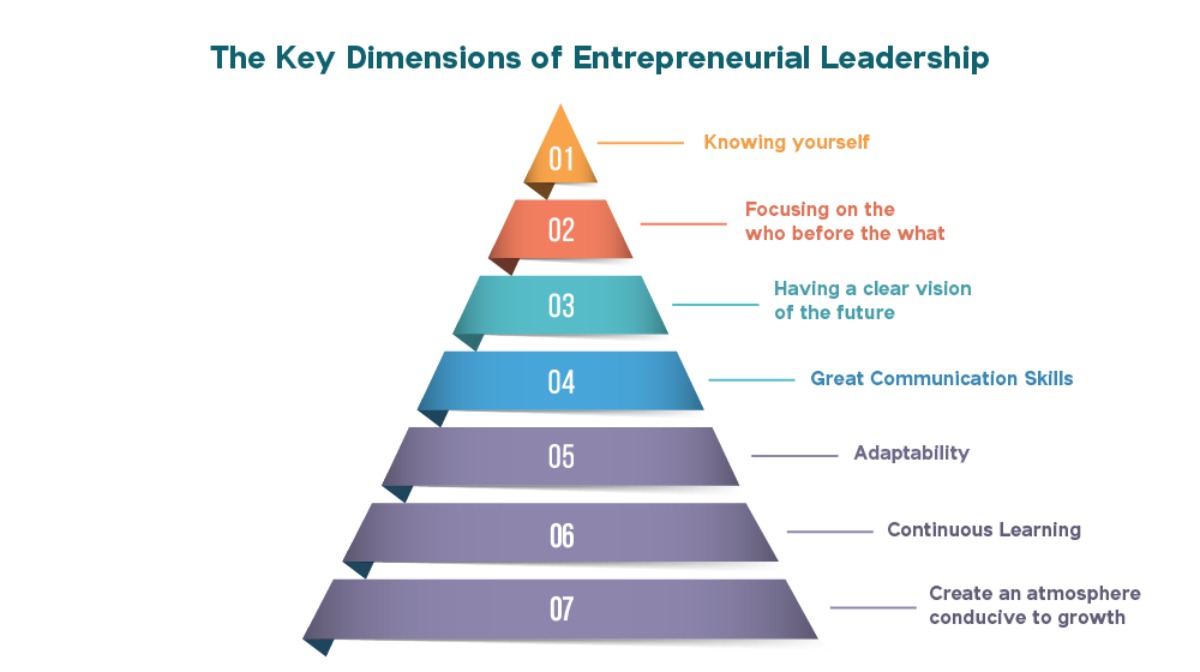
Ex-defence personnel generally have leadership experience as well as strategic acumen, which is one of the prime reasons why they are becoming part of the drone-based startups. These provide various services, including aerial mapping, precision agriculture and infrastructure inspection. As of 2024, there were over 390 drone-based start-ups in India and there is active participation of ex-military personnel in many of them.
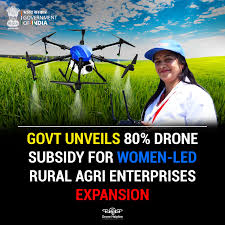
India’s drone training infrastructure has expanded significantly to support the nationwide use of drones. As of 2025, over 25 DGCA-approved RPTOs are offering certification programs across Bengaluru, Hyderabad, Gurugram and Pune. These will train more than 2,500 pilots every year. Many of them have veteran-specific placement programs.
In 2024, India signed a deal to acquire MQ-9B drones and plans to produce its indigenous combat drones, Ghatak and Archer-NG. As these systems take centre stage, more and more ex-defence experts will be required to contribute to pilot training and integration with other defence systems.

No doubt, there are various opportunities for ex-defence personnel in the drone industry, but they do not come without some challenges. Firstly, despite having operational experience, formal certification is mandatory for commercial drone piloting. They must undergo a drone training program to bridge gaps related to the rules of commercial drone flying and the integration of technologies.
Secondly, entering into a startup culture without prior exposure to business planning, funding cycles, or digital marketing can be a tough ask for these defence veterans. There is no doubt that government programs provide enormous support, but they should still be open to learn new things from mentors and industry experts.
The drone industry in the country is highly competitive, to say the least, with nearly 400 start-ups competing to grab government contracts and commercial customers. Ex-defence personnel should always brush up on their skills and experience before they can make a difference in this ever-changing drone industry.
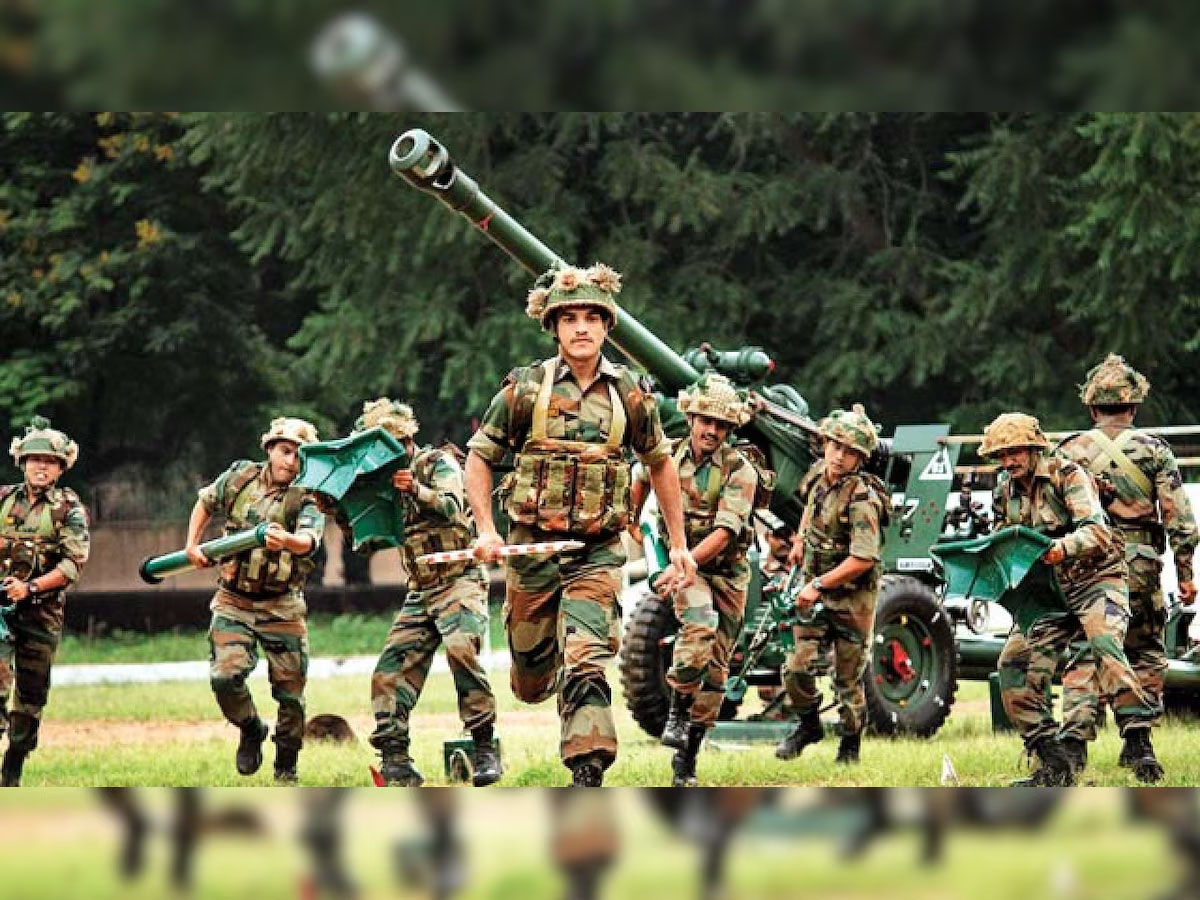
To fully capitalize on the enormous potential of the drone sector, ex-defence personnel should undergo skills evaluation to align their military experience with the sector's requirements in which they wish to work. Enrolling in a DGCA-approved RPTO to acquire an RPC should be prioritized, accompanied by pursuing short-term courses in GIS, remote sensing, AI or maintenance, depending on the desired role.
Joining forces with technologists can complement the leadership and working experience of veterans, resulting in more well-rounded start-ups.
With their extensive military experience, discipline, and dedication, former military personnel can make a significant impact on the drone industry. Whether working as drone pilots, instructors, entrepreneurs, or in another capacity, they can have a bright second career in the drone industry. With drones poised to be the future of various industries, not just in India but worldwide, defence veterans can also play a significant role in this transformation. If you want to become a drone pilot, it is best to enroll with Flapone Aviation, one of the top drone training institutes in India.
Whether you're a beginner or looking to upskill, our training advisors can help you choose the right course.